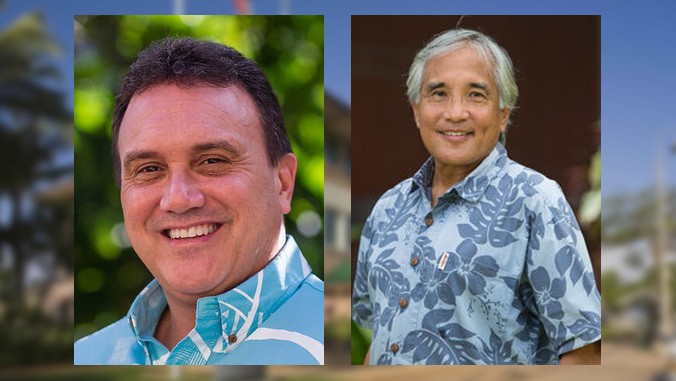
A new Center for Pacific Innovations, Knowledge, and Opportunities (PIKO) to improve the health and wellbeing of Indigenous Pacific People (IPP) is being established with the help of a $15 million, five-year grant from the National Institute of General Medical Sciences (NIGMS). PIKO is focused on Native Hawaiians, other Pacific Islanders and Filipinos. These communities comprise 40% of the state’s population and have disproportionately higher rates of physical ailments and mental health conditions, compared to Caucasian and Asian people in Hawaiʻi.
PIKO will be led by Joseph Keaweʻaimoku Kaholokula, professor and chair of Native Hawaiian health, and Neal A. Palafox, professor of family medicine and community health, of the University of Hawaiʻi at Mānoa John A. Burns School of Medicine (JABSOM). This Institutional Development Award Networks for Clinical and Translational Research center at NIGMS represents a partnership between UH Mānoa, Hawaiʻi Pacific University, Chaminade University and a statewide network of community-based organizations.
“This is an unprecedented partnership and initiative in Hawaiʻi to support talented junior researchers in doing culturally responsive and community-engaged research to improve the health and wellbeing of Native Hawaiians, Pacific Islanders, Filipinos and other health disparate populations,” said Kaholokula.
PIKO will take a team-science approach to transform current research paradigms to accelerate clinical and translational research to improve IPP health. There are seven core components to PIKO: administrative; professional development; pilot projects program; biostatistics, epidemiology, and research design; community engagement and outreach; clinical research and regulatory support; and tracking and evaluation.
UH adds $1.5 M
UH Mānoa has committed $1.5 million over five years toward PIKO, which will increase the number of new and early-stage investigators from IPP communities for clinical and translational research careers. With strong mentoring from established researchers, these emerging scientists will learn how to conduct community-responsive research to find real-world solutions to reduce health disparities and advance health equity.
Key to PIKO’s success will be implementation and dissemination of research findings back to the affected communities through a robust statewide network of community-based partners and community stakeholders, who will share best practices, translate discoveries and leverage data to improve the health of IPP and other marginalized communities in Hawaiʻi.
“Achieving health equity in Hawaiʻi’s marginalized populations requires a dedicated and sustained investment in relevant discovery and problem solving, tasks that belong to the people of these communities,” said Palafox.
For more, go to the JABSOM website.
This effort is an example of UH Mānoa’s goal of Excellence in Research: Advancing the Research and Creative Work Enterprise (PDF), one of four goals identified in the 2015–25 Strategic Plan (PDF), updated in December 2020.

